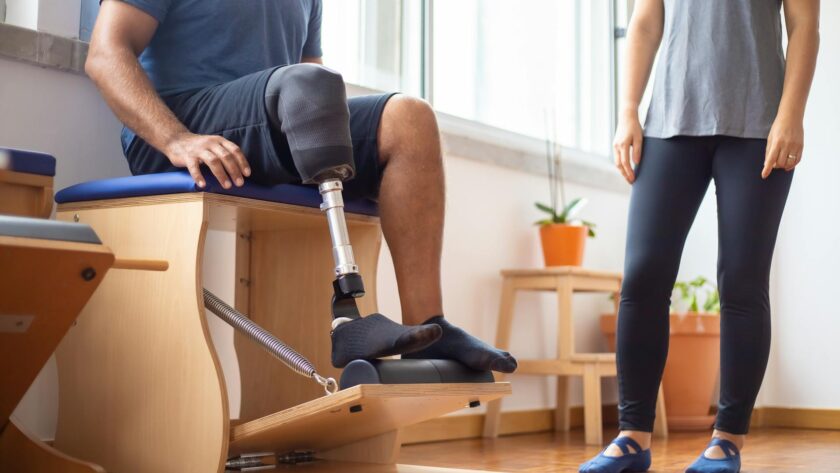Healing from any kind of injury can be uncomfortable to say the least, and inconvenient as a matter of principle. After all, no one chooses or schedules in time to be injured, nor do they expect it to happen. Unfortunately, accidents do occur, and in those circumstances, it feels like life turns upside down.
Of course, in these scenarios focusing on your recovery is more important than anything else at all. There is no shortcut to your body naturally healing itself, or learning to recover from the difficulty you’ve been through. But it’s not all about the physical healing process, even if this is your number one priority.
If you’re trying to put your life back to normal after suffering such an event, then it’s worth considering all aspects of wellness that will help you come out more strongly at the other side. Now, if you’re trying to heal from an injury, we’re willing to bet you have more pressing things on your mind. That’s why we hope to simplify your approach to recovery by covering the various extra nurturing elements of healing in this guide – outside of obvious examples like good sleep, rest and nutrition.
We hope such insight can help you get back on your feet, just as you deserve to be:
Physical Therapy & Rehabilitation Exercises
Healing is one practice that matters, of course, but as our bodies heal we may also encounter other physical effects from the injury. That might include muscle weakness, aches, and a lack of functional strength or flexibility. Luckily, physical and occupational therapists can help you relearn some of the movements and capabilities you had taken for granted beforehand. This might require many sessions of slow, incremental work, and it can sometimes be challenging. But remaining steadfast and taking victories in the little wins can help motivate you and enliven your spirit once more.
Emotional Care From Loved Ones & Curating Passion For Life
It can be intrinsically difficult to motivate yourself after suffering such a physical difficulty thanks to an injury you hadn’t expected. You might lament the loss of function or a long recovery time. All of this is entirely understandable. It’s good to express yourself in a safe space, to have room to vent your emotions, and to gently begin curating that lust and passion for life once more. This might involve focusing on things you love like reading when you have the energy to, going on small trips when possible, or even confiding in a loved one. It all makes a difference, and be sure to not over-analyze your emotional need, sometimes this is very different from mental health treatment.
Undergo Mental Health Care & Counseling, Even If You Feel Okay
Injury is a massive trauma shock to the body, but also to the mind. If you’re not careful, it’s easy to feel flat and demotivated, even if you think you’re otherwise fine. You don’t have to be “weak” or “mentally ill” to suffer symptoms of conditions like PTSD after suffering such trauma. Just as your physical health requires care, your mental health is absolutely imperative to care about. A round of treatment from a counselor or a mental health practitioner could help you more easily unlock your fears or struggles, allowing you to avoid bottling up your emotions or helping you gently build the courage to go back into the world. For example, a car collision can give us an understandable fear of vehicles, but should you be afraid to ever step into a vehicle again? Of course not. Understanding that can inspire your progress as it needs to be enjoyed.
Dental Work & ENT Care
Unfortunately, an injury can cause several related or non-related health conditions that need treatment. We won’t outline any specifically graphic examples of course, but it may be that your dental environment was damaged during a fall. For this reason, visiting a trustworthy dentist for a full and comprehensive examination can help you identify any possible health issues ahead of time, to ensure a complete recovery.
This can also apply to conditions you notice after the event, such as tinnitus which may require the assistance of an audiologist or ENT specialist. If you’re not sure, it’s always better to be safer than sorry.
Bonus: Acceptance
It’s hard to accept that this misfortune befell you. No one wants to be injured, no one wants to live with the effect of injury, no one wants to recover for a long period of time. But accepting this, looking at the bright side (however hard it is), and looking to the future, whatever that looks like, can help you begin to emotionally process and even feel closure from the event as time goes on. It won’t happen overnight, but knowing that one day you’ll look back on this scenario and feel proud of yourself can be one of the final stages of healing.
With this advice, we hope you can get there sooner as opposed to later.



